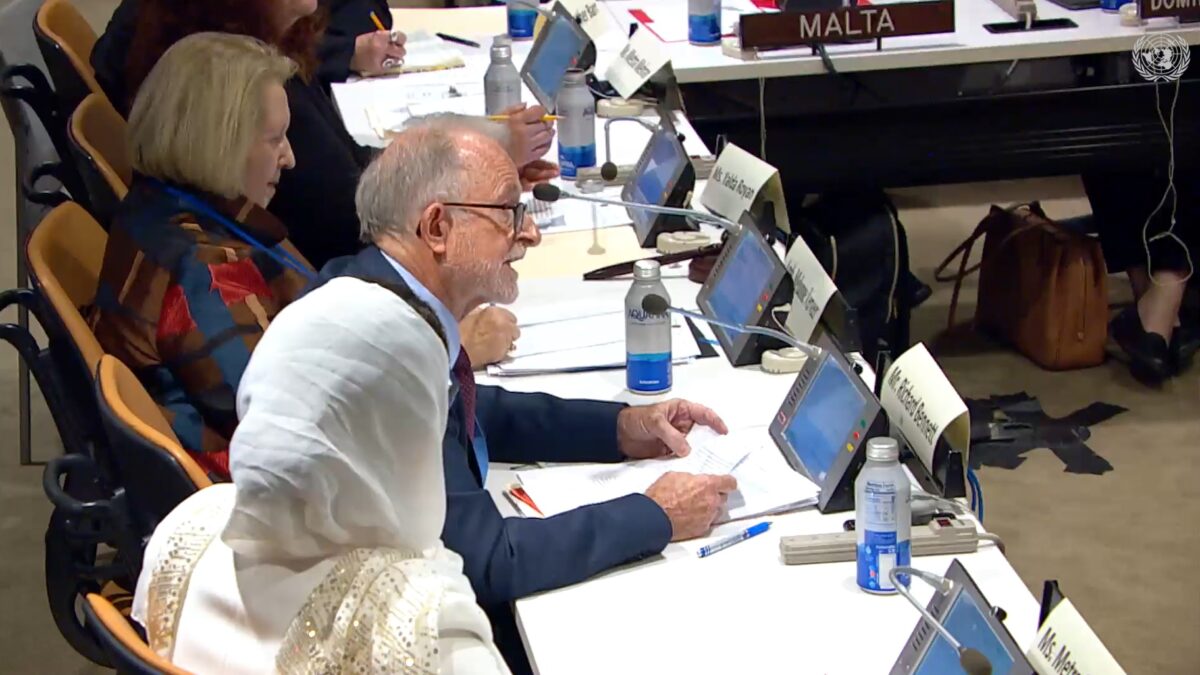The UN special rapporteur for Afghanistan’s human rights, Richard Bennett said that the recognition and normalization of relations with the Taliban by the international community is the “greatest fear” of women and girls in Afghanistan.
Speaking at an event titled “Combating Gender Apartheid: The Situation of Women and Girls in Afghanistan”, Bennett stressed the need for meaningful inclusion of women in policy decisions which are made “within Afghanistan or by the international community.”
Bennett also pointed out the continued “remarkable” resilience of women in Afghanistan.
He also emphasized the need for concrete actions to ensure the rights of women in Afghanistan.
“That trust deficit can only be bridged by concrete actions not just by future declarations of sympathy or condemnation,” Bennet said.
The event, “Combating Gender Apartheid: The Situation of Women and Girls in Afghanistan”, was held on the sidelines of the 78th UN General Assembly.
It was attended by representatives of the international community, human and women’s rights activists as well as the Chargé d’Affaires of the Afghanistan Permanent Mission to the UN, Naseer Ahmad Faiq.
Addressing the event, Faiq voiced his “deepest” concern about the situation of Afghanistan, saying that women and girls are systematically being erased from society and that their fundamental rights are being violated.
“It is a matter that has far-reaching consequences not only for the individuals affected but for the progress and prosperity in our society,” he said.
Faiq noted that Afghanistan under Taliban rule has manifested “nothing less than a gender apartheid.”
“It has been two-years since the Taliban took Afghanistan hostage and created a social, humanitarian, economic and political crisis,” he said. “Within this period, women and girls constituting half of the society have been suffering most.”
Faiq also suggested a proactive global alliance “comprising effective and cohesive messaging, robust policy responses, collective and united actions” to steer away Afghanistan from its current dangerous trajectory.
He stressed the need for further reporting mechanisms to hold the Taliban accountable for their human rights violations and crimes against humanity.
“Let’s support the progressive and democratic forces including women led movements and activists within and outside Afghanistan,” he said.
This comes amid growing calls from human rights activists that the repressive edicts against women and girls in Afghanistan should be recognized as “gender apartheid” by the international community.
Meanwhile, participants at the UN General Assembly held this week in New York stressed the need for the formation of an inclusive government in Afghanistan to pave the way for a solution to the ongoing crisis in the country.
An event titled “Global Solidarity with Afghan Women and Girls” which was also held on the sideline of the UN General Assembly in New York, saw women’s rights activists and diplomats calling on the world to take practical steps against the Taliban to get them to remove restrictions on girls and women in Afghanistan.





